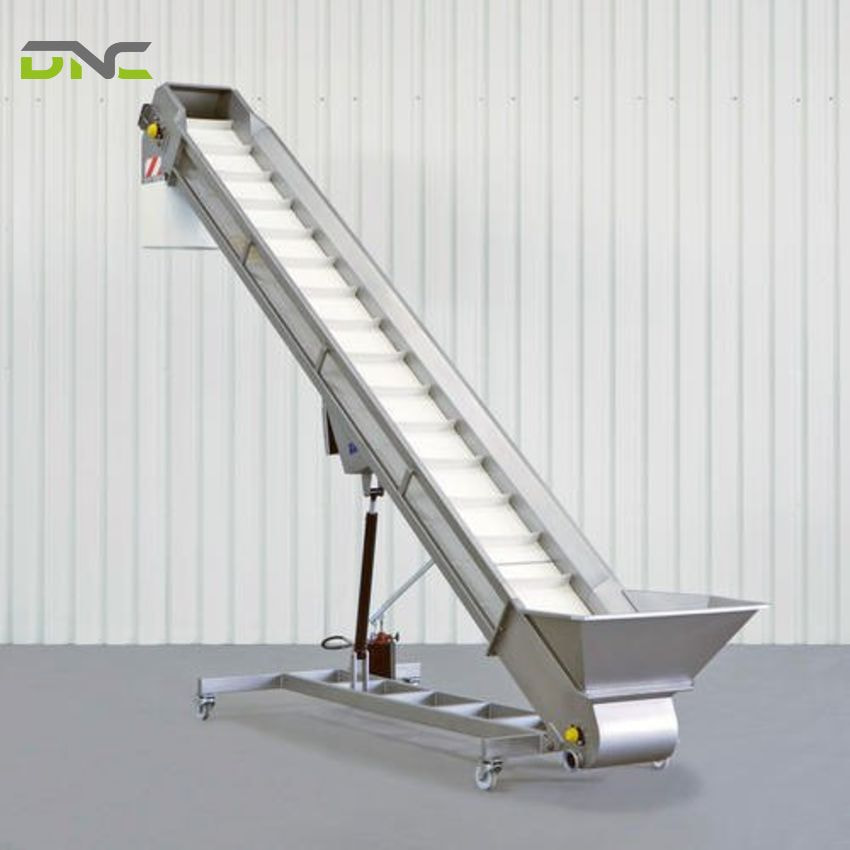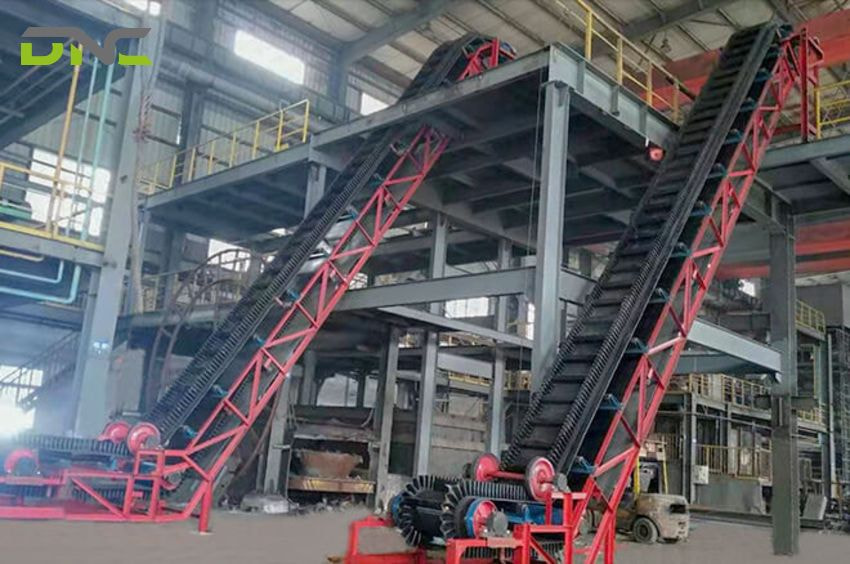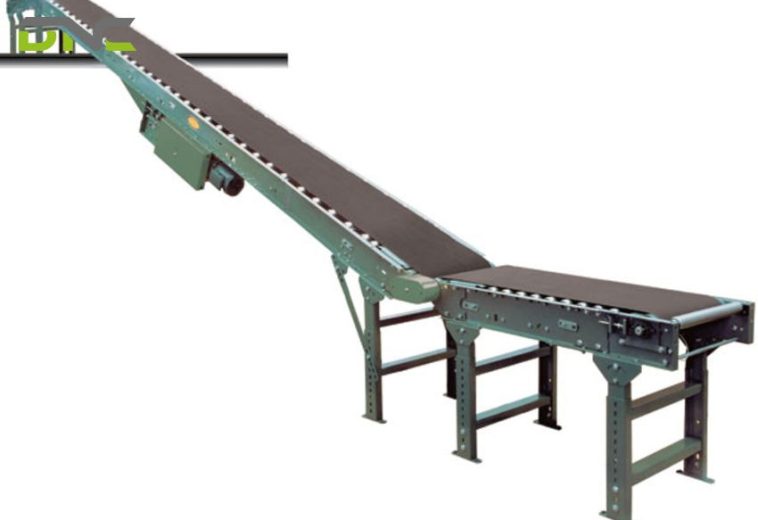What is An Inclined Conveyor? Advantages, Applications & Latest Quotes 2026
What is an Incline Conveyor? An inclined conveyor is a type of material handling system designed to move goods and materials from one level to another. The equipment has a belt or chain that runs over rollers or a slide platform, which are positioned at an angle, allowing materials to be transported up or down with minimal manual effort.
Unlike horizontal conveyors, inclined conveyors are specifically designed to handle steep slopes while maintaining stability and minimizing slippage. These systems are especially valuable when limited floor space and vertical movement are required. Depending on the specific application, the equipment may be equipped with stop bars, side guards, or special straps to prevent items from sliding or falling back due to gravity.
Inclined conveyor specifications
- Conveyor Width: 300 mm – 1200 mm or customized
- Conveyor Length: 2m – 20m
- Incline Angle: 10° to 45°
- Speed Range: 0.2 – 1.5 m/s
- Load Capacity: 30 kg – 200 kg/m
- Frame Material: Mild Steel or Stainless Steel
- Conveyor Material: PVC, PU, Rubber, Modular Plastic, or Mesh
- Drive Motor: 0.75 kW – 3.0 kW
- Warranty: 12 months
How much does an inclined conveyor cost?

How much does an inclined conveyor cost?
The cost of an inclined conveyor depends largely on its size, specifications, and customization. Here is a breakdown of the price range and influencing factors:
- Standard models: Basic incline conveyors with lightweight belts and fixed inclines typically cost between $2,000 and $5,000.
- Mid-Range Systems: Mid-Range conveyors with latched belts, speed control, and adjustable inclines cost between $5,000 and $10,000.
- Heavy-Duty Custom Units: For heavier loads, longer lengths, and specialized requirements (e.g., stainless steel construction, food-grade belting, automation integration), costs can exceed $15,000 to $30,000 or more.
In addition, the complete cost of an inclined conveyor equipment may also incur additional costs from installation, transportation, and control systems or safety enclosures, which need to be noted in advance with the supplier.
What are the advantages of an inclined conveyor?

What are the advantages of an inclined conveyor?
For each price level, whether low or high, inclined conveyors have certain advantages. Therefore, inclined conveyors are always popular with customers because of their convenience and certain benefits. Some notable advantages of the equipment are:
- Optimizing space, helping to take advantage of vertical space, inclined conveyors save valuable floor space in manufacturing and warehouse facilities.
- Improving operating efficiency by allowing continuous and automatic material transportation between floors, reducing manual handling, and increasing throughput.
- Safe for workers because inclined conveyors reduce the need to lift and carry heavy objects by hand, minimizing worker injuries and improving ergonomics.
- Flexibility and customizability, as it can handle a wide range of products, from bulk materials such as grains and flours to individual items such as boxes or containers with flexible tilt angles
- Integrating automation into production lines is easy, saving a significant amount of investment costs.
Inclined conveyors can be considered a reliable and cost-effective solution for moving materials vertically and improving efficiency that any business should own.
Which fields need to use an inclined conveyor?

Which fields need to use an inclined conveyor?
With their convenience and many outstanding advantages, inclined conveyors are trusted in many different industries, including:
- Manufacturing is used to transport parts, assemblies, or waste materials between production stages or floors in a multi-storey facility.
- Food processing: Essential for moving items such as packaged snacks, fruit, or bakery products in a sanitary environment.
- Agriculture: Inclined conveyors are used to lift grain, seed or fertilizer into storage silos, hoppers or trucks.
- Mining and quarrying: Heavy-duty inclined conveyors are used to move crushed stone, ore, and debris to different heights or loading points.
- Logistics and warehousing: Used to connect different levels of storage systems, transport parcels, or move cartons and pallets to shipping areas.
With its flexibility in movement, inclined conveyors are truly indispensable equipment even in the simplest production stages.
Where should you buy an inclined conveyor?
Currently in Malaysia, there are many reputable conveyor solution providers, however, DNC Automation is automatically the top choice when buying quality inclined conveyors. Here are 4 reasons why you should prioritize choosing products from us:
- Highly specialized technical team, consulting according to your needs
- Genuine products, clear evidence, and fast delivery
- Dedicated customer care, 24/7 support
- Attractive warranty and after-sales policy
If you want high-quality inclined conveyor solutions, please contact the hotline below for quick support. We are ready to serve you at any time!
- 29 views
- 0 Comment




Recent Comments